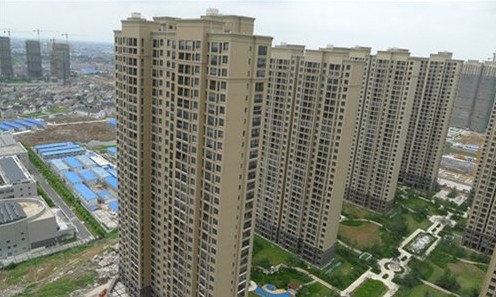
 |
| Recently completed skyscrapers jostle with those still under construction in the Changzhou skyline. Photo: Liu Dong/GT |
As a taxi driver in Changzhou for a decade, Zhang Weixin never thought his hometown would become a "ghost city" someday. In his eyes, the city seems to be doing better than ever.
Located at the heart of the Yangtze River Delta, the 2,500-year-old eastern coastal city of Changzhou used to be called the Dragon City, for its prosperity and wealth. But it has been facing harsh tail winds recently after some media reports labeled it a "ghost city."
According to a National Business Daily report in January, most newly built residential compounds along Wuyi Road, a new area of the city, had a high vacancy rate as few lights could be seen at night.
However, the Changzhou government soon published an official announcement to refute such accusations, calling it groundless to label Changzhou as a "ghost city" simply due to a lack of lights.
"Most properties on Wuyi Road are just finished or still under construction, it is unreasonable to judge the vacancy rate when the area is still in a transition period," Wu Haiyong, deputy director of Changzhou Housing Administration Bureau said at a press conference in February.
However, this clarification didn't settle the argument among the public and the media as more and more "ghost cities" have emerged nationwide.
According to a China Youth Daily report in July, at least 12 such ghost cities across the country have been found. Besides the best known of these - Ordos in North China's Inner Mongolia Autonomous Region, the list also included Changzhou in Jiangsu, Zhengdong New Area in Henan Province, Shiyan in Hubei and Chenggong District of Kunming in Yunnan.
Despite their varied geographical locations and economic development levels, these cities share one common characteristic: their local governments had all placed a large amount of investment into building new zones filled with commercial facilities, residential compounds and infrastructure. Only one thing is missing, people.

















 Factory explosion may stoke concern
Factory explosion may stoke concern


![]()
